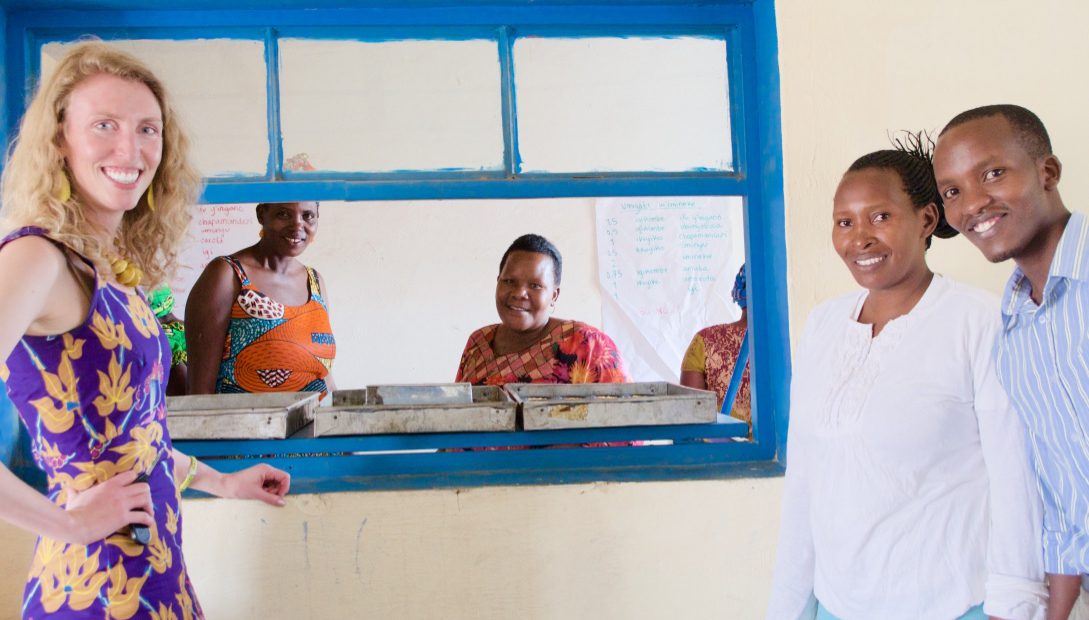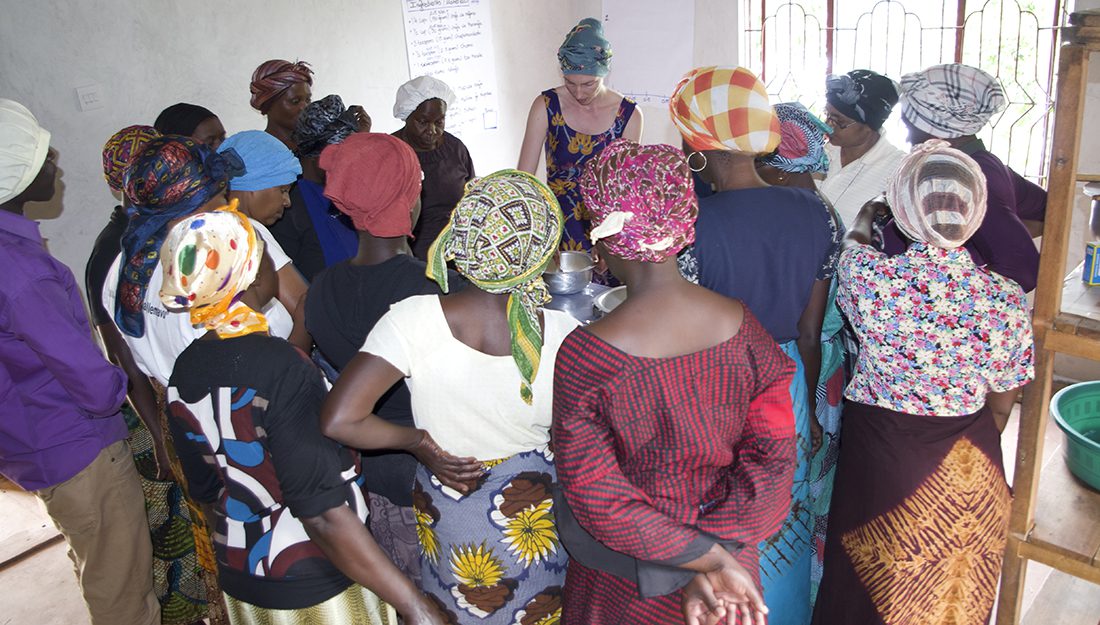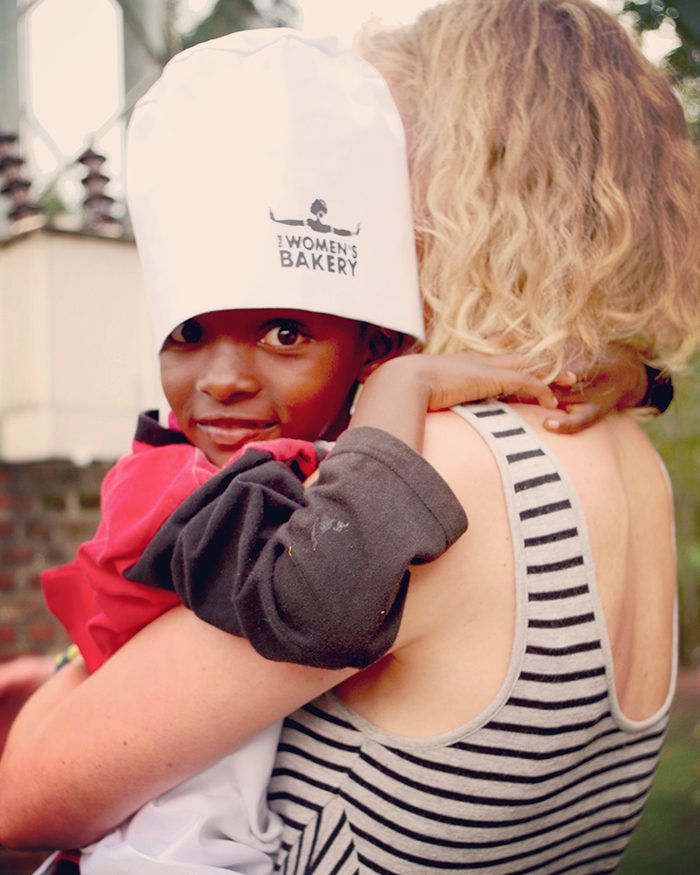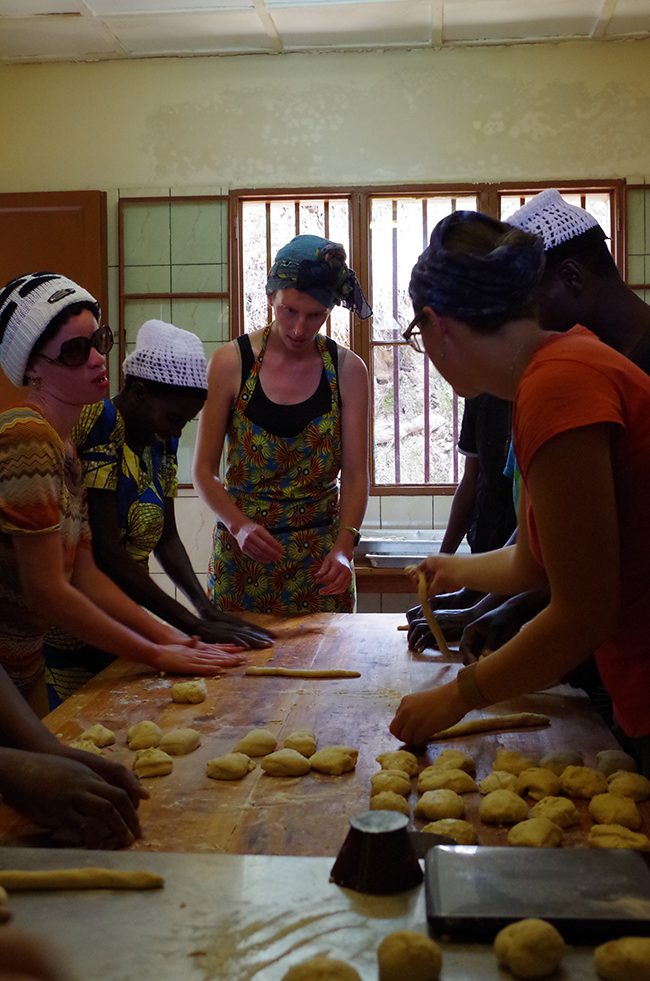An Enterprise Built with Bread

Markey Culver ’08 doesn’t tell the story you expect.
“I had zero interest in going to Africa,” Culver said.
But she did go. And within a few years of setting foot on the continent, she co-founded The Women’s Bakery (TWB), which is training women in Rwanda and Tanzania to make bread and open bakeries.
In her years at Furman, Culver remembers admiring another student who was passionate about humanitarian needs in Africa. Culver thought that was great—but not for her. When she applied to the Peace Corps, she had an opportunity to list where she’d like to go and what she’d like to do.
Her answer: somewhere in Latin America, doing something agricultural.
Her assignment: Rwanda, teaching English as a second language.

Hired by Micro-financing Partners in Africa on behalf of the Bukoba Women’s Empowerment Association in 2015, The Women’s Bakery moved a team to Bukoba, Tanzania, to run a three-month training program for 20 women. Since graduation, the training has spurred the launch of 7 home-bakeries and 2 medium-sized bakeries.
Culver shrugged her shoulders and dove into the job. She lived with, and like, the other 300 people in the village of Bushoga, most of whom ate only once a day.
“I tried to do it for a while, in solidarity,” Culver said. “And then I was like, ‘Wait a minute, people, I’m so hungry.’”
She started slipping home during her mid-day break to make a salad out of the vegetables that were available: cabbage, avocados, tomatoes, onions. Some of the people watched her come and go, and laughed, guessing what she was up to.
But before long, women were following her, asking about her odd habit of eating raw food. Culver started teaching them about nutrition.
And then the salad wasn’t enough. Culver had an epiphany: “I’ve been gluten-free for far too long and that’s completely unacceptable. I need to make bread immediately.”
She pulled out a Peace Corps recipe book that included directions for using two pots and some stones to make an “oven” over a fire. She combined flour, yeast, salt, sugar, and water and baked her first loaf.
“I made it to complement the salad I was making for myself that day,” she said.
The women of the village came to taste. And then they came to learn. And then they told her they thought they could sell this bread at a nearby market.
“The women knew the intricacies of the market, of the culture, of the ingredients,” Culver said.
The next step seemed obvious.
The business plan

Culver pictured with a child of one of the bakers in the Western Province of Rwanda, worked alongside co-founder, Julie Greene, to lead the second Rwanda cohort—the first group with both men and women.
As Culver finished her Peace Corps service, she wrote a plan for a baking school and showed it to the women. It would take $500 to implement. Before leaving Africa in November 2012, she offered to put up $250 if they could match the other half.
“I meant it, but I didn’t realize they’d do it as quickly as they did,” Culver said.
She heard from them the following April. They were ready.
Culver, her brother David and a fellow Peace Corps alum, Julie Greene, recognized the women’s energy and commitment to the concept. They put together a more complex plan, raised $8,000, and built their first bakery in July 2013.
They trained 12 women in three months and walked away with a hearty “Good luck,” certain they’d empowered the students to take off on their own.
“That’s a really nice sentiment,” Culver said. “It doesn’t work in action.”
Following a decent start, the business collapsed in spring 2014. Culver learned it’s one thing to teach people the basics, and it’s another to ask them to immediately and successfully apply those lessons without oversight.
The partners analyzed what when wrong, found a philanthropist who believed in the idea—and went back to try again.
Emily Robinson ’09 loves the concept of her friend’s organization.
“It is meant to be the kind of help that becomes self-sustaining,” Robinson said. “The idea of empowerment is at the heart of it.”
Robinson, who recently transitioned into full-time singing and songwriting, did a 2016 benefit concert to support The Women’s Bakery.
“We’re in a wave of women helpers and women makers and women doers,” Robinson said.
The training
The Women’s Bakery is no casual arrangement. Students work through 150 hours of curriculum that starts with nutrition and life skills, moves into small business skills, and wraps up with advanced baking and business strategies. Students fly through the materials, progressing from tasting to making to selling in about two months.
The women who come into the program average an income of $15 a month. Afterward, they average $53 a month.
The Women’s Bakery was incorporated in June 2015 and trained a full cohort of women soon after that. The team opened a bakery in the Rwandan capital of Kigali.
The women who are trained to bake and run a business have options when they complete the program. Some join a large-scale Women’s Bakery. Others go home to bake and sell on a small scale. Currently there are three full-scale bakeries—two in Rwanda and one in Tanzania —and seven home bakeries, also in Tanzania.

In 2016, TWB secured the first partnership with the U.S. Peace Corps in Rwanda. In conjunction with a Peace Corps Volunteer and her community, TWB trained 20 individuals in baking, nutrition, business, and life skills.
While Culver travels back and forth, her co-founder, Greene, stays in Rwanda full time, running the work there along with a staff of three Rwandans, including a store manager, a training manager and a teacher.
The organization has a unique framework. In the United States, it’s a non-profit, raising money and awareness. In Africa, it’s a for-profit business, providing jobs and salaries for nationals as it simultaneously trains and supports women to own their own businesses.
Because the infrastructure here in the States is minimal, “you know that your money is having almost immediate impact on communities in Tanzania and Rwanda and in women’s lives,” Robinson said.
The reality
For many in East Africa, hunger is a daily companion. The Peace Corps volunteers regularly saw its impact on their students.
“It’s a huge barrier to not only showing up but retaining any of the information,” said Heather Newell, U.S. programs officer for The Women’s Bakery.
Bread is not the same commodity in Africa that it is in the U.S. It’s available primarily in larger towns and cities. It’s all the same—and not very good, either, Newell said. For people who live in smaller villages, the bland loaves are usually only available at a distance and are in sorry condition by the time they reach the village.
The Women’s Bakery sets the bar higher, with flavor- and nutrition-boosting ingredients such as bananas, beets, carrots, and honey.
“It’s not your standard bread that Rwandans are typically used to,” Newell said.
In the cities with bakeries, the bread is available at the bakery stores as well as area supermarkets. In the villages, it’s being made and sold by women directly from their own homes.
Rwanda is divided into 30 districts. Newell would love to see a bakery in every one of them.
“Eventually this will be a Rwandan-run enterprise and we’re working ourselves out of a job,” she said.
And Culver doesn’t envision stopping at one country’s borders. She sees East Africa. She sees the whole continent. The possibilities are invigorating—and overwhelming.
“I’m so scared,” Culver said. “There’s no road map when you’re doing this.”
But she believes what they’re doing matters.
“And matters enough that we’re going to stick with it, despite it being so, so difficult.”